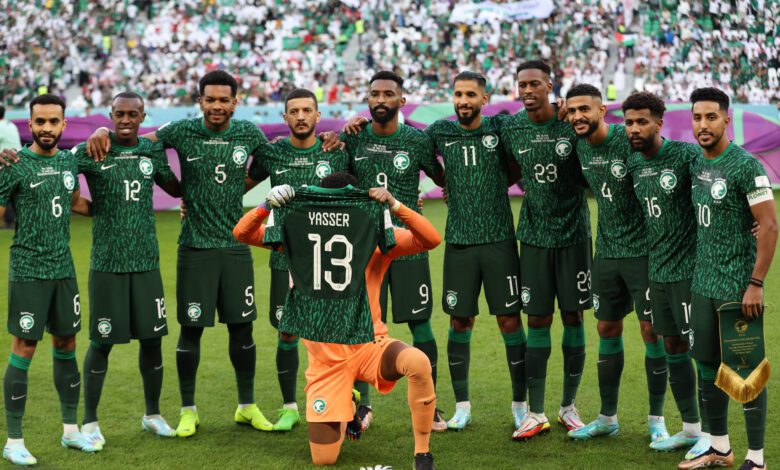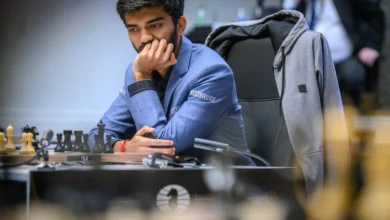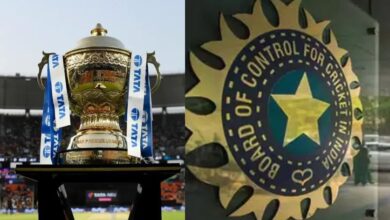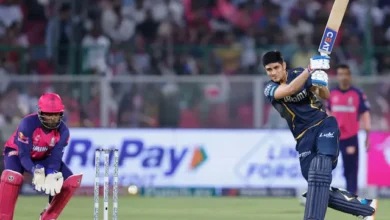Is Saudi Arabia the next big thing in world football?
Questions arise over the amount of money spent by the Saudi teams and how will it affect European teams?

Seven months back, European football and its fans felt a shock when Cristiano Ronaldo announced that he will be signing for Saudi Pro League team Al-Nassr. At that point, it seemed to be a rather strange decision for such a top footballer who even though was past his prime, was still a good player. A decision for which he was mocked intensively for many days and months.
The move was a result of fights and disagreements between Ronaldo and Ten Hag, who would not give Ronaldo games and claims that the Manchester United management and Ten Hag mistreated him and did not believe Ronaldo when he told them about his daughter’s illness. This was revealed by Ronaldo in an explosive interview due to which Ronaldo’s contract was terminated with Manchester United but that is a debate for another day.
However, those mocking Cristiano Ronaldo have now almost shut up and are now in a dilemma about whether to mock him more or to start supporting the Saudi Pro League as more popular players from European teams such as Karim Benzema, N’Golo Kante, Ruben Neves, Eduoard Mendy, Hakim Ziyech etc, join .
The transfers of these players to Saudi came as a surprise to fans and also sent shockwaves across the football community across the world, raising the question, is Saudi Arabia on its way to becoming the next big thing in world football? Or is it going to follow the path of the Chinese League?
Since, the move of Cristiano Ronaldo to the Saudi Pro League, the viewership has shot up and this has helped convince more players to join the league but the leading force has been nothing else but money. The money that Saudi is ready to give to the players is just not what the players would get even if they played in Europe for the rest of their life. For example, Ronaldo’s two-and-a-half-year contract, reportedly worth up to 200 million euros ($212 million) per year including commercial agreements. Ronaldo’s individual annual earnings is also said to be so high that it will exceed the total staff wage bill for roughly half of the clubs in the English Premier League.
Another example is that of Ruben Neves, who was constantly linked with the likes of Barcelona and Manchester United, is earning an estimate of 12 Million Pounds at Al Hilal which is triple the amount he was earning at Wolves.
This is exactly the method that the Chinese Super League followed: buy big players who are nearing their retirement or even at their peak, and it did work as it managed players of the likes of Hulk, Paulinho, Oscar, Teves, etc. However, the Chinese Super League failed pretty miserably as the Chinese Football Association introduced new rules, such as each team could only have 3 foreign players on the pitch, a wage cap and a 100% tax on big overseas signings. Adding to this, the Covid-19 pandemic also hurt Chinese clubs and their owners a lot because of which some of them went bankrupt and shut down.
But the Saudi Arabian league will be smart enough to not repeat these mistakes, as it looks to become the top football league of the world in the next few years and as it looks to ready itself to make a potential joint bid for the FIFA World Cup 2030. This also shows the Arabian attempts to conquer world football as more and more English and European teams are being bought or at the very least stakes of teams being bought by the Saudi Public Investment Fund. The Saudi has a similar approach to the sport of golf as players left the PGA Tour to join the Saudi-funded LIV International Golf Series. This was due to the financial benefits, which outweighed the PGA Tour incentives for which some of the best players in the world play.
The Saudi Pro League does not practically have any financial fair play regulations as some its teams such as Al Nassr, Al Hilal, Al Ahli, and Al Itiihad are owned by or at least have a majority stake by the Saudi Public Investment Fund, while even Aramco is looking to buy a stake of Al Qadsia and another company Neom has also bought a part of side Al Suqoor FC. This creates more problems for the European clubs as they all have to abide by UEFA Financial fair play regulations and cannot pay exuberant wages to their players while Saudi Pro League teams do not and they have used this to their advantage. Another problem this has caused European clubs is that because of the Saudi effect, directly or indirectly the transfer values and player wages have increased and since there is a cap on the money any European club can spend more than 90% of its revenues with a plan to further reduce the percentage to 70% in the next 2-3 years which means if the revenues of the clubs do rapidly increase over the next 2-3 years, the European teams could suffer substantial losses in relation to the quality of the players who would still remain in Europe despite them being offered higher wages elsewhere. This can also negatively affect European teams in relation to them getting bigger brand deals and sponsorships depending on the players in the clubs and their viewership.
Another problem that European clubs face is that more and more investors from Saudi Arabia are also now approaching to buy stakes in clubs that are not owned by the public or socios. This will increase the control of Saudi investors over the clubs and once a lot of teams in a league are owned completely or partially by Saudi or any other Gulf country which would be ready to spend as much money as Saudi does, then it can be predicted that the national football association of the league or even UEFA will be forced to increase the wage cap or maybe even remove the wage cap. This will be because since most of the key players in asking for a high wage cap and indirectly deciding the wage cap would be from Saudi or from other Gulf countries such as Qatar, which have a lot of oil money, then it would be easier for them to convince and even pressurise the associations and maybe even UEFA to listen to them.
This would be in inclination to the Saudi long-term objective to have at least 100 big players playing in the Saudi Pro League. While Saudi team might not get to the level of the teams in the Premier League, La Liga or even the Bundesliga in the next 5-10 years in the least, the way things are going continue then Saudi Arabia might just make the next decade theirs or at least till the time they have money with them.
While Saudi being the new footballing superpower is not a problem as it would only lead to the development of the sport in the east where most of the countries except countries such as South Korea, Japan and now Gulf countries (Saudi Arabia & Qatar) are still developing their football infrastructure. This would also mean that these top players would play in Asian leagues which will improve the football funding and infrastructure further. The problem with this happening is that, at the moment it feels like Saudi Arabia has unlimited money and FIFA will need to bring in some global financial regulations to make sure this doesn’t continue so as not to create a sudden imbalance. Even UEFA will have to bring in some regulations so that European players don’t leak out to Saudi for money and the standard of European clubs and their quality is maintained.



